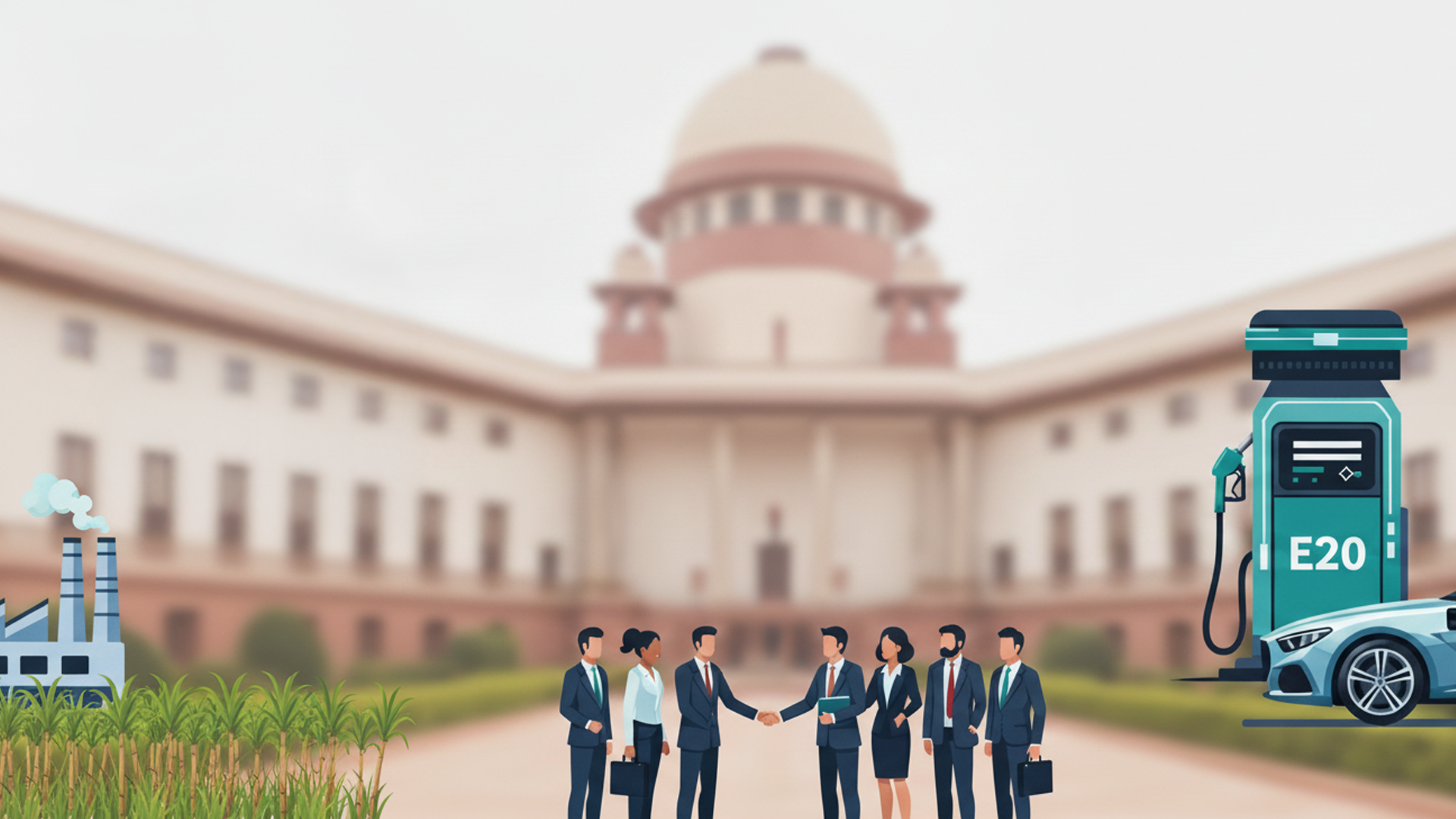Supreme Court Upholds E20 Rollout, Rejects Plea for Ethanol-Free Petrol Option
Defending the policy, the Ministry of Petroleum and Natural Gas said E20 petrol not only improves acceleration and ride quality but also supports India’s economic and energy security objectives.

The Supreme Court on Monday, September 1, dismissed a public interest petition challenging India’s nationwide rollout of 20% ethanol-blended petrol (E20), clearing the way for the government’s aggressive ethanol blending program aimed at boosting farm incomes and reducing crude oil imports.
A Bench led by Chief Justice of India B.R. Gavai and Justice K. Vinod Chandran sided with the Union government, which defended the policy as critical for sugarcane farmers and foreign exchange savings. Attorney-General R. Venkataramani told the court that the petitioner, a foreign resident, was acting at the behest of vested interests and argued that national fuel policy should prioritize domestic objectives over external pressures.
India has been gradually introducing ethanol blending since 2023, moving from E5 and E10 blends to E20. The transition is part of a broader energy diversification strategy and supports the government’s goal of achieving 20% ethanol blending nationwide by 2025. While only vehicles manufactured after April 2023 are officially certified for E20 use, ethanol-free petrol has largely been phased out across the country’s 90,000 retail outlets, forcing owners of older vehicles to adopt the new blend.
The petitioner, represented by senior advocate Shadan Farasat, argued that consumers were being denied a choice of ethanol-free fuel and cited NITI Aayog’s 2021 “Roadmap for Ethanol Blending in India 2020-25,” which warned of a 6–7% drop in fuel efficiency for four-wheelers and 3–4% for two-wheelers running on E20. The petition also raised concerns about potential engine damage, higher maintenance costs, and loss of manufacturer warranty and insurance coverage, particularly for vehicles not designed for high ethanol blends.
It further criticized the lack of transparency at fuel stations, claiming that Indian consumers are not informed about ethanol content, unlike in the U.S. and European Union, where clear labelling is mandated and ethanol-free petrol remains widely available. The petitioner sought compulsory labelling of ethanol content at all dispensing units and a nationwide study on the long-term impact of E20 on non-compliant vehicles.
Defending the policy, the Ministry of Petroleum and Natural Gas said E20 petrol not only improves acceleration and ride quality but also supports India’s economic and energy security objectives. The ministry highlighted the role of ethanol blending in reducing reliance on imported crude and providing stable demand for sugarcane farmers, which has been a cornerstone of the government’s rural economic agenda.
With the Supreme Court’s dismissal, the rollout of E20 will proceed without ethanol-free alternatives, cementing India’s shift toward ethanol as a key component of its energy mix. While the verdict is a boost for ethanol producers, sugar mills, and the oil marketing ecosystem, it leaves unresolved questions around consumer choice, fuel efficiency, and the readiness of India’s ageing vehicle fleet for the transition.